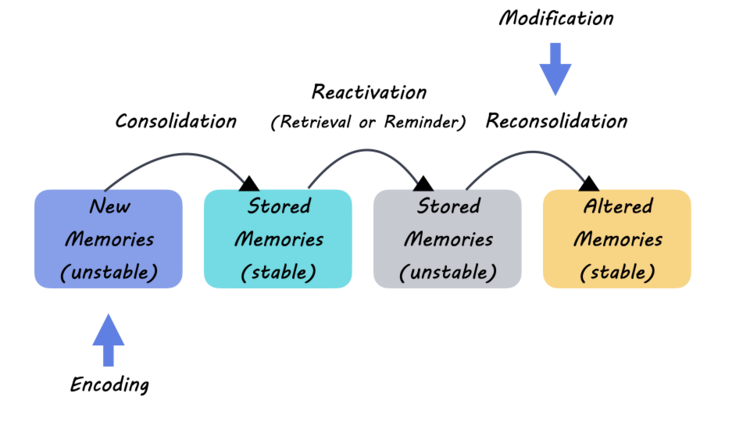Social interaction is an indispensable aspect of human life that goes beyond mere conversation; it plays a crucial role in our emotional and mental well-being. The neurological basis of social interaction reveals how deeply embedded our need for connection is within our brains, as evidenced by recent studies linking social behavior to brain activity. Health experts emphasize the importance of social connection, equating it to fundamental needs like nourishment and shelter, which illustrates how essential social relations are to overall health. Understanding the effects of social isolation can illuminate its detrimental impact on mental health and social behavior, leading to conditions like anxiety and depression. As researchers continue to explore the intricacies of social needs in humans, their findings highlight the criticality of fostering relationships for a fulfilling life.
Engagement with others, often referred to as social engagement or interpersonal interaction, is a vital component of human existence. This phenomenon underscores the significance of forming connections and relationships that greatly influence emotional stability and overall wellness. The interplay between social ties and mental health has gained considerable attention, revealing the repercussions of social disengagement on psychological conditions like depression and anxiety. By examining the intricate dynamics of human companionship, researchers delve into the fundamental mechanisms behind our social instincts and needs. As science unveils the complexities underlying our interactions, it becomes increasingly clear that fostering personal relationships is essential for cultivating a healthy and balanced life.
Neurological Basis of Social Interaction
Recent research in neuroscience has highlighted the intricate neurological basis for social interaction, revealing how brain circuits regulate our innate need for companionship. Within this context, a study led by Ding Liu and his team has focused on the hypothalamus, which is traditionally associated with basic survival drives like hunger and thirst. By drawing parallels between these physiological needs and our social needs, Liu’s work suggests that the need for social interaction may function similarly to drives for food or water. This suggests that our interactions with others are not simply a source of pleasure but are crucial for our survival as social beings.
These findings push the boundaries of traditional thinking regarding social behavior and imply that the absence of social interaction can lead to adverse effects on mental health, leading to conditions commonly associated with social withdrawal, such as depression or anxiety. Liu and his colleagues discovered that prolonged periods of isolation in their mice models led to neural aversions to social behavior, indicating that the impact of social deprivation is perhaps more severe than previously understood. Understanding the neurological underpinnings can pave the way for new treatment approaches for mental health issues rooted in social isolation.
Importance of Social Connection
The importance of social connection extends beyond mere companionship; it is fundamental to overall health and well-being. As stated by health experts, social connection is now regarded as a basic human need, akin to essential resources like food and water. Individuals who maintain strong social bonds report better mental health outcomes and lower levels of stress. This acknowledgment by the health sector signals a paradigm shift in how we view relationships—highlighting not only their psychological benefits but their physiological importance as well.
Moreover, the social connections we form foster resilience against mental health disorders, enhance emotional stability, and even improve physical health. The interconnectedness of our social behaviors and biological systems underscores the significance of maintaining healthy relationships and networks. As loneliness has been identified as a significant health concern, recognizing social connection as vital can inspire initiatives aimed at fostering community ties and reducing isolation among vulnerable populations.
Mental Health and Social Behavior
The interplay between mental health and social behavior is a growing area of concern in both research and clinical practice. Individuals suffering from mental health issues often experience a compounding of their condition due to reduced social interactions, leading to a cycle of withdrawal and isolation. This phenomenon highlights the necessity of social engagement in averting the deterioration of mental health and promotes recovery through supportive relationships. Furthermore, studies indicate that individuals with robust social networks are better equipped to cope with stress, which is crucial for mental well-being.
Furthermore, the study led by Ding Liu provides a compelling framework for understanding this connection on a neurological level. By identifying specific neural circuits associated with the desire for social interaction, researchers are equipped with a framework to explore interventions that enhance social connectivity for those struggling with mental health challenges. Insights from these studies can guide healthcare professionals in developing more effective treatment modalities that not only focus on the individual but also take into account their social environment.
Effects of Social Isolation
Social isolation presents significant risks to mental and physical health, and its effects are increasingly being recognized as a public health crisis. The 2023 alarms raised by the U.S. Surgeon General about isolation underscore the need for urgent attention to this issue. Social isolation is linked with increased risks of conditions such as depression, anxiety, and even physical ailments like cardiovascular diseases. The mechanisms behind these associations can be traced back to neurobiological responses that arise from a lack of social interaction, akin to deficiencies in essential nutrients.
Research findings from Liu and his team indicate that prolonged social isolation can alter neural circuits and lead to an aversion to socializing. This illustrates the critical role of social engagement in maintaining both mental and emotional stability. Understanding the biological responses to social isolation can inform public health strategies aimed at mitigating its adverse effects. Creating community programs that facilitate social connections can be pivotal in combating the health consequences of isolation and fostering a more connected society.
Social Needs in Humans
Human beings are inherently social creatures, relying on complex networks of relationships to thrive. The social needs that dictate our interactions are not merely emotional preferences; they are deeply encoded in our biology. Just as we require food and water to sustain our physical health, social connections are equally necessary for psychological well-being. This biological imperative for social bonding reflects our evolutionary past and underpins our social structures in contemporary society. Understanding these needs can help equip individuals and health professionals with the tools to foster better social environments.
In light of current digital trends, where physical interactions are increasingly supplanted by virtual connections, acknowledging the profound importance of tactile and face-to-face communication becomes essential. Behavioral studies underline that physical closeness—ranging from hugs to handshakes—plays a significant role in fulfilling our social needs. By emphasizing the biological and psychological foundations of our social behaviors, we can better craft strategies that promote well-being and mitigate the effects of modern isolation.
Evolution of Social Interaction
The evolution of social interaction in humans can be traced back to our ancestors, where forming social bonds was critical for survival. Early humans relied on cooperation and collaboration to hunt for food and gather resources, reinforcing the notion that social interaction is vital for thriving communities. Over centuries, the importance of these bonds has only magnified, as modern society requires not just familial connections but extensive community ties to navigate complex social landscapes.
Moreover, as contemporary challenges arise—from urbanization to technological advancement—the nature of social interactions continues to evolve. We witness shifts from face-to-face interactions to online engagement, which raises concerns from a psychological standpoint. Understanding the evolution of social needs can aid in recognizing why and how human connections must adapt while still addressing the inherent biological requirements stemming from our evolutionary history.
Neuroscience Insights on Social Behaviors
Recent advances in neuroscience have provided critical insights into the mechanics of social behavior. By mapping neural circuits responsible for social interaction, researchers have begun to decode how these processes influence our psychological states. Models used in studies involving animals, such as mice, have revealed specific neurons linked to the desire to connect with others. This neurological perspective creates a foundation for understanding human social behavior through a biological lens, laying the groundwork for further research into social-based therapies.
Moreover, by exploring how sensory experiences—such as touch—affect social behaviors, researchers can draw direct parallels to human experiences. For instance, tactile stimuli have been shown to be extremely impactful for social bonding, indicating that our neurobiological responses are finely tuned to the nuances of social interaction. Insights from these studies can shape therapeutic approaches that prioritize social connectivity, aiming to enhance the quality of life for individuals across various mental health spectrums.
Psychological Implications of Loneliness
The psychological implications of loneliness extend beyond mere feelings of sadness; they permeate various facets of an individual’s mental health. Loneliness has been linked to a range of psychological disorders, including anxiety and depression, highlighting its significance as a mental health phenomenon. Understanding the biological implications of loneliness, as outlined in recent studies, can foster improved mental health interventions that address social connectivity. These interventions can incorporate community-building efforts that prioritize emotional and social support.
Further exploration into the sources and consequences of loneliness can inform public health practices. As highlighted by Liu’s study, the connection between neuronal activities and social behaviors underscores the necessity of maintaining social bonds. By raising awareness of the psychological ramifications of social isolation, healthcare practitioners can advocate for policies that encourage social engagement and enhance the overall well-being of individuals in society.
Future Directions in Social Interaction Research
As research on the neurological and psychological underpinnings of social interaction expands, it opens avenues for innovative study designs and applications. Future research could leverage advanced imaging techniques to further explore how various social behaviors manifest in the brain. By deepening our understanding of how social needs are processed neurologically, we can build a comprehensive framework to address societal issues related to social isolation and mental health.
Additionally, examining the intersection between technology and social interaction will be vital. As society shifts towards more virtual forms of communication, understanding how these changes impact our neurological and psychological responses will be crucial. Studies that analyze the efficacy of virtual versus in-person interactions could yield valuable insights that inform how we structure our engagements in an increasingly digital landscape.
Frequently Asked Questions
What is the neurological basis of social interaction?
The neurological basis of social interaction involves complex brain mechanisms that drive our need for companionship. Recent research highlights the hypothalamus as a critical area that regulates social behaviors similarly to drives like hunger and thirst, emphasizing how vital social connections are for mental health.
Why is social connection considered important for mental health?
Social connection is deemed crucial for mental health as it helps mitigate feelings of loneliness and isolation. Engaging in meaningful interactions activates brain chemistry associated with happiness and satisfaction, reducing risks of mental ailments such as depression and anxiety.
What are the effects of social isolation on humans?
Social isolation can have severe effects on humans, including increased risks of mental health issues and physical health problems. Extended periods of isolation can lead to aversion to social behavior, highlighting the importance of maintaining social connections for psychological well-being.
How do social needs influence behavior in humans?
Social needs significantly influence human behavior, driving individuals to seek companionship similarly to fulfilling needs like hunger or thirst. The brain prioritizes social interactions, and lack of these can lead to adverse mental health outcomes, reinforcing the importance of social engagement.
What role does touch play in social interaction and connection?
Touch plays a vital role in social interaction, enhancing feelings of closeness and emotional bonding. Research indicates that physical touch, such as hugging or handshaking, is essential for fulfilling social needs, which is critical for overall mental health and well-being.
| Key Points | Description | |
|---|---|---|
| U.S. Surgeon General’s Warning | Social isolation is recognized as a significant public health issue. | |
Summary
Social interaction is not just a luxury; it is a fundamental human need, vital for maintaining both mental and physical health. Recent studies highlight the neurological frameworks that underpin our instinctive drive to connect with others, revealing that social behavior might be as essential as the basic needs for food and water. Understanding the biological roots of our social instincts can illuminate the effects of social isolation and drive better mental health strategies in our increasingly digital world.









